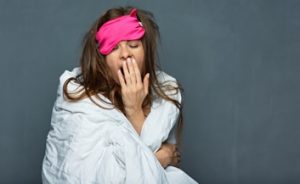
Night owls, heed our warning: Chronic sleep deprivation will age your skin well before its time. Luckily, it’s never too late to change your habits. Here are some helpful tricks, compliments of HEALTHbeat, a Harvard Medical School journal, and other trustworthy health sources for getting more—and better-quality—sleep.
1. Cut down on caffeine.
Caffeine blocks adenosine, a neurotransmitter thought to promote sleep. Caffeine can also interrupt sleep by increasing the need to urinate during the night. Avoid caffeine after noon, or 2 p.m., at the latest, to ensure a good night’s rest.
2. Stop smoking or chewing tobacco.
Nicotine stimulates your central nervous system, speeding your heart rate, raising blood pressure, and stimulating fast brainwave activity—all of which promote wakefulness, not sleep. Quitting this bad habit will help you sleep better. If you do smoke, stop for the day at least two hours before bed.
3. Limit alcohol intake.
While alcohol depresses the nervous system, making it easier to fall asleep, it doesn’t promote lasting, high-quality REM sleep. Alcohol actually raises your body’s level of the stress hormone epinephrine, which increases your heart rate and stimulates the body. Alcohol can also worsen sleep breathing problems, such as snoring.
Other proven pointers for better Z’s are getting regular exercise, establishing a regular sleep schedule, and “unplugging” before bed. The light from your TV, computer, or phone may disrupt your body’s natural sleep-promoting process by stimulating a nerve pathway from your eyes to your brain.
For more beauty tips, call 303.327.7300 or request a personal consultation today.


